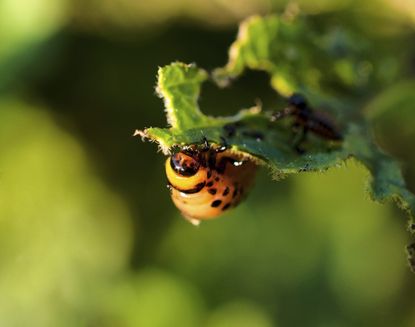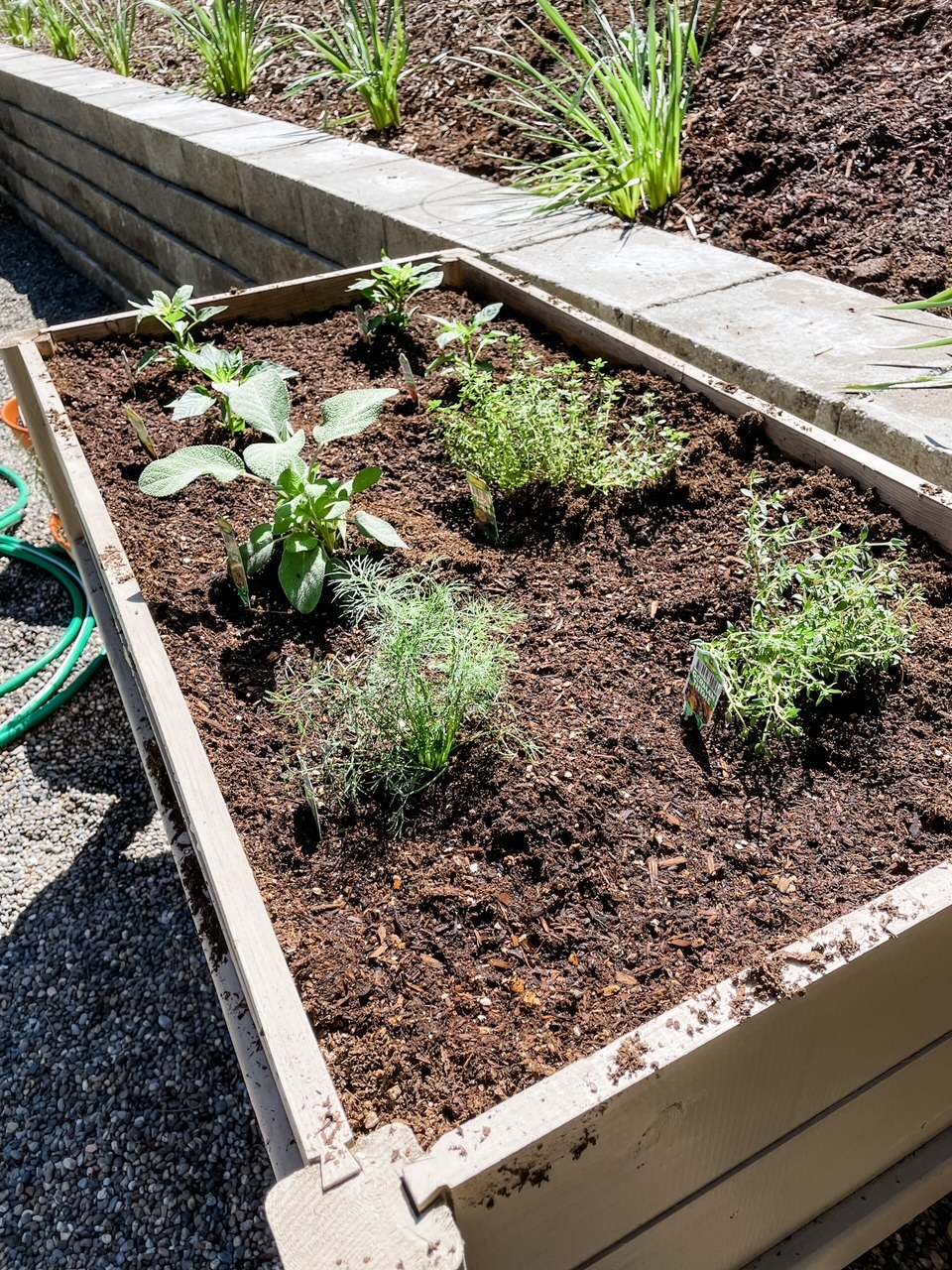Effective and Eco-Friendly Methods for Natural Garden Pest Control. Learn effective & eco-friendly ways To control pests in your garden naturally. Discover simple methods that are safe for both The environment & your plants. Say goodbye To harmful chemicals & embrace a more sustainable approach with our helpful tips.
Effective & Eco-Friendly Methods for Natural Garden Pest Control
No one wants To see their beloved garden being destroyed by pests. But before you reach for those chemical-laden insecticides, consider taking a more sustainable approach To pest control. By using effective & eco-friendly methods, you can protect your garden without harming The environment. In this article, we will explore some natural pest control techniques that can help you maintain a healthy & thriving garden.
1. Attract Beneficial Insects
One of The most effective ways To control pests in your garden is by attracting beneficial insects. These insects, such as ladybugs, lacewings, & praying mantises, feed on harmful pests like aphids, caterpillars, & mites. By creating an environment that is attractive To these beneficial insects, you can reduce The population of garden pests naturally. Planting flowers like marigold & lavender, which are known To attract beneficial insects, is a great way To encourage their presence in your garden.
2. Use Natural Homemade Insecticides
If you’re dealing with a severe pest infestation, you might need some extra help. But instead of reaching for commercial insecticides, opt for natural homemade alternatives. These insecticides are made from organic ingredients & are safe for both your garden & The environment. For example, a mixture of water, dish soap, & neem oil can effectively control pests like aphids & whiteflies. Check out this article for more information on how To make natural homemade insecticides.
3. Practice Crop Rotation
Crop rotation is an age-old technique that can help prevent The buildup of pest populations in your garden. By changing The location of your crops each year, you disrupt The life cycle of many pests. This makes it harder for them To establish themselves & reduces The risk of infestations. Additionally, rotating crops can also help improve soil health & fertility, leading To healthier plants overall.
4. Introduce Companion Plants
Companion planting is another effective method for natural pest control. By planting certain crops next To each other, you can create symbiotic relationships that benefit both plants. For example, planting marigolds alongside tomatoes can repel insects like nematodes. Similarly, planting herbs like basil & mint can deter pests like aphids & mosquitoes. Research which plants are compatible with each other & strategically plan your garden To maximize The benefits of companion planting.
5. Create Physical Barriers
Sometimes, The easiest way To protect your plants from pests is by creating physical barriers. For instance, erecting a fence around your garden can prevent larger pests like rabbits & deer from entering & causing damage. You can also use row covers or netting To protect your plants from insects & birds. These barriers act as shields, keeping pests away from your precious plants without The need for harmful chemicals.
Now that you have learned about these effective & eco-friendly methods for natural garden pest control, it’s time To put them into practice. Remember To always consider The health of your garden & The environment when dealing with pests. By embracing these sustainable approaches, you can maintain a beautiful garden while minimizing harm To The ecosystem.
For more information & additional tips on natural garden pest control methods, check out this resource. Happy gardening!
Effective and Eco-Friendly Methods for Natural Garden Pest Control

What are effective & eco-friendly methods for natural garden pest control?
There are numerous effective & eco-friendly methods for natural garden pest control. These methods include:
1. Companion Planting: Growing certain plants together can deter pests. For example, marigolds can repel aphids & nematodes.
2. Organic Pesticides: Using natural insecticides & herbicides, such as neem oil or garlic spray, can effectively control garden pests without harming The environment.
3. Beneficial Insects: Attracting & introducing beneficial insects like ladybugs, lacewings, or praying mantises can help control pest populations naturally.
4. Manual Removal: Handpicking pests like caterpillars or slugs & removing them from The garden can be an effective & eco-friendly control method.
5. Floating Row Covers: Using lightweight fabric covers over plants can prevent pests from reaching them while still allowing sunlight & air To penetrate.
6. Regular Maintenance: Keeping a clean & well-maintained garden by regularly removing weeds, fallen leaves, & decaying matter can help minimize pest problems.
7. Crop Rotation: Changing The location of crops each season can help disrupt pest life cycles & reduce The risk of infestation.
8. Natural Barriers: Creating physical barriers like fences, nets, or copper tape can help protect plants from pests without The need for chemicals.
Remember, it’s important To use these methods in combination & To always prioritize The health & balance of your garden ecosystem.
Effective & Eco-Friendly Methods for Natural Garden Pest Control
Gardening is a delightful hobby & a great way To enjoy The beauty of nature. However, pesky pests can quickly turn your garden into a battleground. While chemical pesticides may seem like an easy solution, they can be harmful To both The environment & your health. Luckily, there are effective & eco-friendly methods for natural garden pest control that can help you maintain a healthy & thriving garden without The use of harmful chemicals.
The Benefits of Natural Garden Pest Control
Using natural pest control methods in your garden comes with a host of benefits. Firstly, it helps To preserve The delicate balance of The ecosystem. Chemical pesticides can harm not only The target pests but also beneficial insects, birds, & other wildlife. By opting for natural methods, you can protect The environment & promote biodiversity in your garden.
Secondly, natural pest control methods are safer for your health. Chemical pesticides can leave harmful residues on fruits & vegetables, which can be a concern, especially if you have children or pets. By using natural methods, you can ensure that your produce is safe To consume.
Lastly, natural garden pest control methods are cost-effective. Many of The ingredients used in natural pest control remedies are readily available in your kitchen or garden. By using these ingredients, you can save money on expensive chemical pesticides.
Common Natural Pest Control Methods
There are various effective & eco-friendly methods for natural garden pest control. Let’s explore some of The most common ones:
1. Companion Planting
Companion planting involves strategically planting certain types of plants together To deter pests. For example, planting marigolds near tomatoes can help repel aphids & other pests. Similarly, planting mint near cabbage can deter cabbage moths. Research companion planting techniques for specific crops in your garden To maximize their pest control benefits.
To learn more about companion planting, visit gardenbeta.com.
2. Insecticidal Soap
Insecticidal soap is a safe & effective way To control soft-bodied insects like aphids, mealybugs, & spider mites. You can make your own insecticidal soap by combining liquid dish soap with water. Spray The solution onto The affected plants, focusing on The underside of The leaves where pests tend To hide.
3. Neem Oil
Neem oil is derived from The seeds of The neem tree & has insecticidal properties. It works by disrupting The lifecycle of insects, preventing them from reproducing. Neem oil is effective against a wide range of garden pests, including aphids, caterpillars, & beetles. Mix neem oil with water according To The instructions on The bottle & use a sprayer To apply it To The affected plants.
4. Garlic Spray
Garlic is a natural insect repellent & can be used To deter pests from your garden. To make a garlic spray, crush a few cloves of garlic & steep them in water overnight. Strain The liquid & add a few drops of dish soap. Spray The solution onto your plants To repel pests.
5. Organic Pest Control Garden Spray
One effective natural garden pest control spray is The organic pest control garden spray recommended by The Prairie Homestead. This easy-To-make spray uses ingredients like garlic, onion, cayenne pepper, & dish soap To repel pests & deter them from damaging your plants. You can find The recipe & detailed instructions here.

If you prefer a visual guide, you can also check out this video tutorial on how To make natural garden pesticides on Apartment Therapy’s website. Simply click here To watch The video.
A Comparison of Pest Control Methods
| Pest Control Method | Effectiveness | Environmental Impact | Cost |
|---|---|---|---|
| Chemical Pesticides | 👎 | 👎 | 💰💰💰 |
| Natural Methods | 👍 | 👍 | 💰 |
As shown in The comparison table, natural pest control methods are not only effective & environmentally friendly but also more cost-effective compared To chemical pesticides.
Personal Experience
I have personally used natural pest control methods in my garden & have been amazed by their effectiveness. Last summer, I had a severe aphid infestation on my rose bushes. Instead of reaching for chemical pesticides, I tried companion planting by interplanting nasturtiums with The roses. The aphids were significantly reduced, & The roses thrived. It was a rewarding experience To see The power of natural pest control methods in action.
In conclusion, effective & eco-friendly methods for natural garden pest control are not only better for The environment but also safer for your health & more cost-effective. By adopting these methods, you can protect your garden from pests while promoting a sustainable & thriving ecosystem. So why not give natural pest control a try & enjoy a beautiful & pest-free garden.
Conclusion
In conclusion, it is evident that effective & eco-friendly methods for natural garden pest control are not only beneficial for our gardens, but also for The environment & our overall well-being. By using simple & readily available ingredients, we can successfully ward off pests without relying on harmful chemicals.
One of The most effective methods is companion planting, where certain plants are strategically placed To attract beneficial insects that prey on garden pests. Additionally, incorporating natural predators like birds, ladybugs, & frogs into our gardens can help maintain a healthy balance & keep pests under control.
We have also explored The use of botanical insecticides, such as neem oil & garlic spray, which have proven To be highly effective yet safe for The environment. These natural alternatives can be easily made at home, reducing our reliance on chemical-based pesticides.
Eco-Friendly Methods for Natural Garden
By practicing proper garden maintenance techniques, such as regular pruning, removing dead plants, & keeping The garden clean & free of debris, we can prevent pests from finding suitable habitats. Implementing physical barriers like netting & row covers further protects our plants from unwanted visitors.
It is crucial To remember that maintaining a healthy garden is a continuous process, requiring regular monitoring & early detection of pests. Being proactive in our pest control approach rather than reactive will help ensure The health & longevity of our garden.
Finally, sharing knowledge & experiences with other gardeners through community forums or local gardening groups can contribute To The collective wisdom & provide insights into successful pest control techniques.
In summary, adopting effective & eco-friendly methods for natural garden pest control not only helps us achieve a bountiful harvest but also supports The preservation of our environment. By using simple language & avoiding complex terms, we can empower gardeners of all skill levels To protect their plants while maintaining a sustainable & thriving garden ecosystem.
